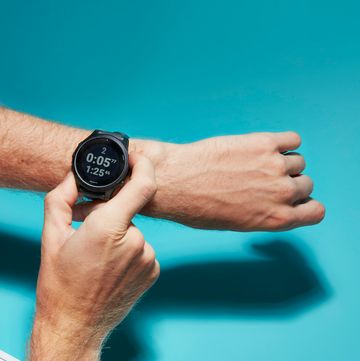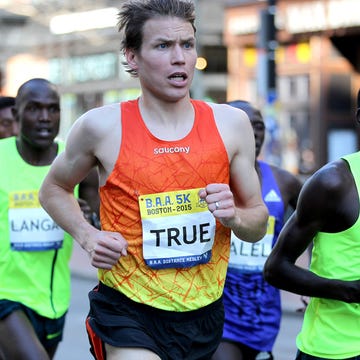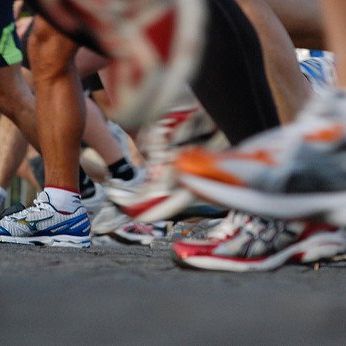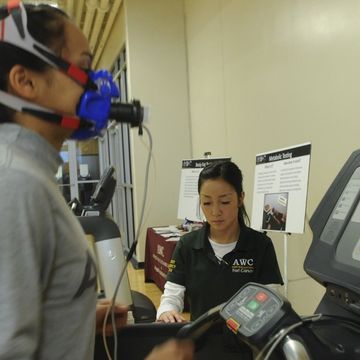A couple of interesting points from a new study on the aerobic benefits of interval training, published in the European Journal of Applied Physiology by researchers from CSU San Marcos. They had two groups of women complete 12 weeks of interval training on an exercise bike, three times per week. The workouts structures were pretty much identical (6-10 times 60 seconds hard, with 60-75 seconds rest); the only difference is that one group did "hard" intervals (80-90% of peak power) while the other group did "moderate" intervals (60-80% of peak power).
Here's how VO2max changed in the two groups:
So the hard-interval group improved more quickly, but by the end of the 12 weeks they were basically the same. (Both groups increased their VO2max by ~22%, from 29 to 36 ml/kg/min). The conclusions you might draw from this are:
(1) Yes, interval training works to increase aerobic fitness. (It's worth noting that weight and body composition didn't change. That's not a surprise, and shouldn't be the focus of this type of exercise anyway. Increasing aerobic fitness, independent of any weight changes, is a fantastic result with all sorts of health benefits.)
(2) If you push harder, you'll improve more rapidly. Again, this is not exactly surprising.
(3) But in the long run, you'll end up making the same improvement. This IS a bit surprising, and is worth looking a little more closely at. You can see that after nine weeks, the hard group stops improving, while the easy group continues with its slow-and-steady progress. The big question is: when and why you do start to see diminishing returns from an exercise program? And the general answer is: even if you've got the best exercise/training program in the world, if you just repeat it over and over again, you'll eventually get so used to it that you're no longer giving your body a new stimulus to adapt to. The bar has to be constantly changing -- either with different types of workouts, or making the same workout harder or longer.
In this study, the subjects had maximal cycle tests every three weeks to reassess their fitness. That means that "80% of peak power" corresponded to a higher power level halfway through the study than it did at the beginning, though the subjective effort was more or less the same. So there was some degree of progression. Here's what the full training program looked like:
It's actually quite a nice program, but there's a key point to notice. The hard-interval group keeps cycling through the same three weeks over and over, going 80-85-90% of peak power; the paper explains that pilot testing showed that the subjects (who were untrained at the start of the study) were unable to complete workouts at higher intensities without longer recoveries, so it wasn't practical to progress to harder workouts. Fair enough. But the moderate group DID progress: the first three weeks were 60-65-70, the next three weeks were 65-70-75, and the final six weeks were 70-75-80% of max power. For a study that's designed to compare the rate at which aerobic fitness improves, that seems odd. Of course the hard group saw steep initial improvements followed by a plateau: they were doing the same thing over and over again. And of course the moderate group, after starting a slower rate, continued to improve steadily: their workouts were gradually getting harder throughout the study.
That doesn't change anything about the first two conclusions above. Yes, interval training (and continuous non-interval training, if you prefer) improves aerobic fitness, even at relatively modest intensities. And yes, harder training will produce quicker gains. But I'd change the third conclusion to the following: if you want to keep improving, you have to keep challenging yourself in new ways. You can't get better than you are today by doing the same workout you did yesterday.
***
Read the Sweat Science book, and follow the latest posts via Twitter, Facebook, or RSS.












